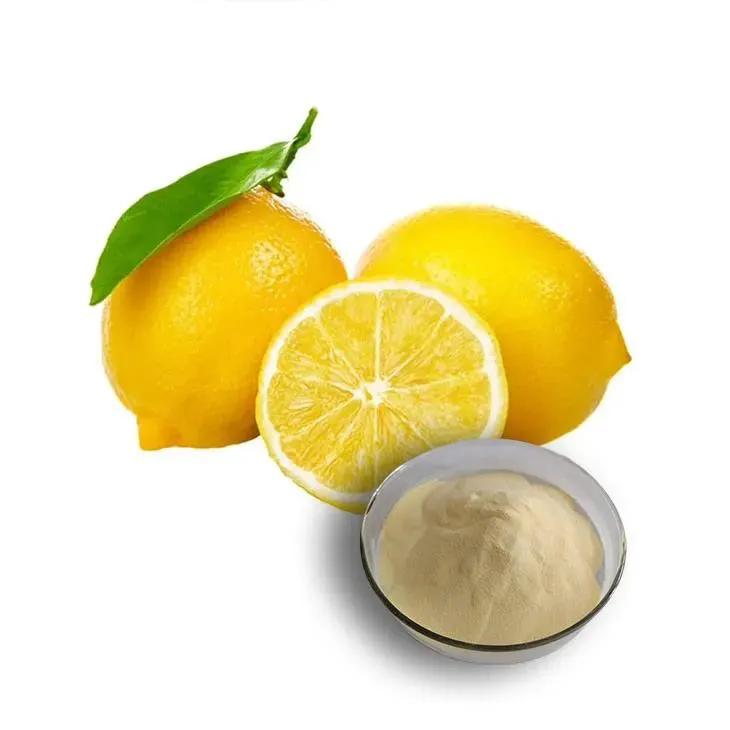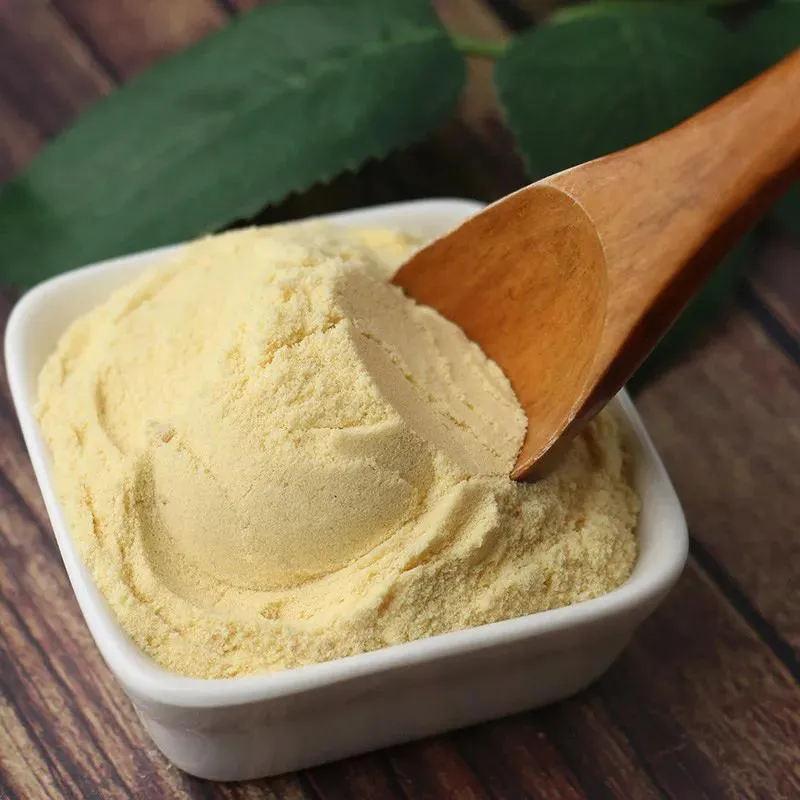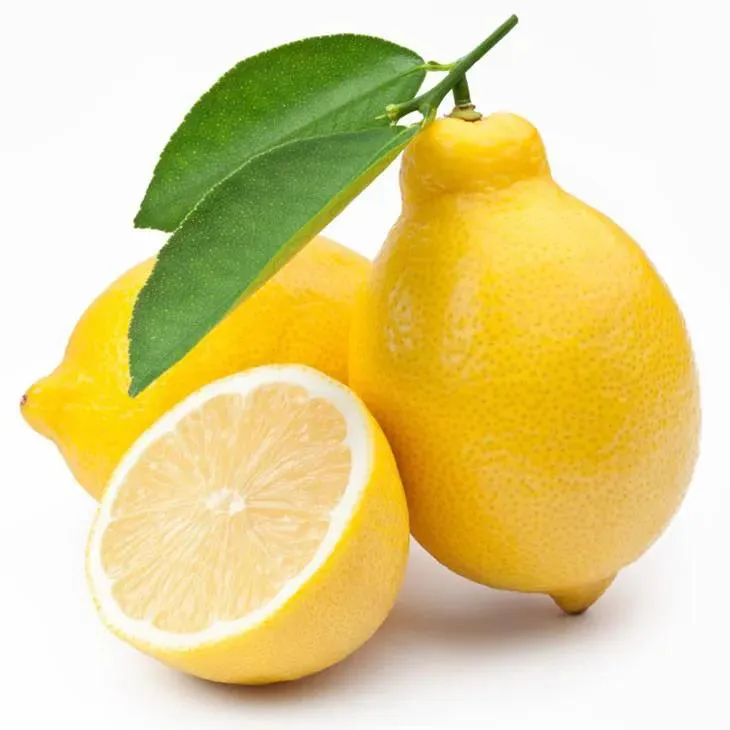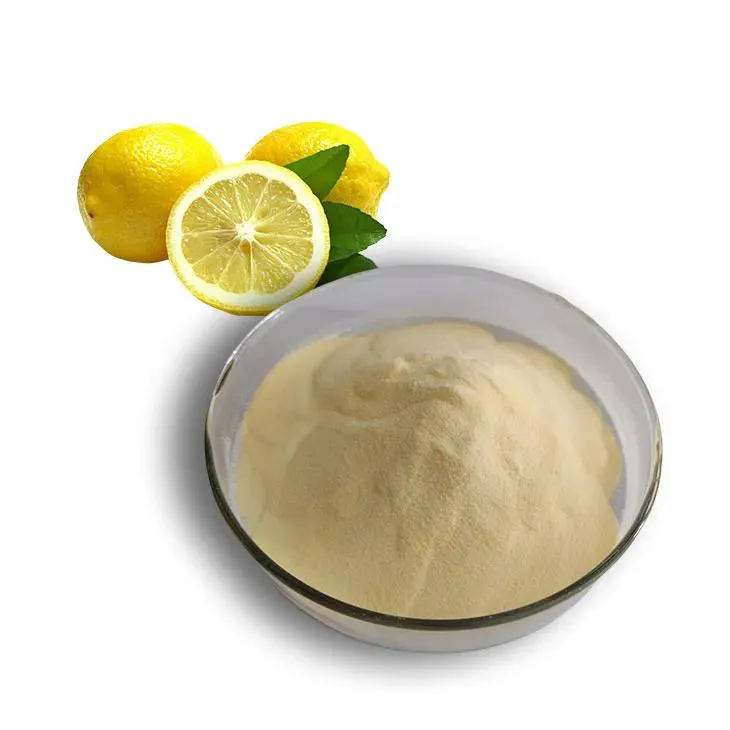- 0086-571-85302990
- sales@greenskybio.com
The process of extracting limonene from lemon juice powder.
2024-11-27

1. Introduction
Limonene is a significant compound with a wide range of applications in various industries such as food, cosmetics, and pharmaceuticals. It is a cyclic monoterpene and is known for its characteristic citrusy aroma. Lemon Juice Powder, on the other hand, serves as a convenient and concentrated source for extracting limonene. Understanding the process of extracting limonene from Lemon Juice Powder is crucial for maximizing its potential use in these industries.

2. Significance of Limonene
2.1 In the Food Industry
Limonene is widely used as a flavoring agent in the food industry. It imparts a natural citrus flavor to a variety of products including beverages, candies, and baked goods. Its use is not only limited to flavor but also has some potential health benefits. For example, it has been studied for its antioxidant properties, which can help in preventing the oxidation of food components and thereby extending the shelf - life of products.
2.2 In the Cosmetics Industry
In the cosmetics industry, limonene is a valuable ingredient. It is often used in perfumes, lotions, and creams due to its pleasant smell. Additionally, it has some skin - friendly properties. It can act as a solvent for other cosmetic ingredients and also has some antibacterial and antifungal properties, which can help in maintaining the integrity of cosmetic products.
2.3 In the Pharmaceuticals Industry
The pharmaceuticals industry also utilizes limonene. It has been investigated for its potential in drug delivery systems. Its ability to penetrate cell membranes makes it a candidate for transporting drugs to specific cells. Moreover, it has shown some anti - inflammatory and analgesic properties in pre - clinical studies, which could potentially be developed into new drugs.

3. Properties of Lemon Juice Powder as a Source
3.1 Composition
Lemon juice powder contains a variety of components in addition to limonene. These include sugars, acids (such as citric acid), vitamins (like vitamin C), and other minor compounds. The presence of these components can influence the extraction process. For example, the acidic nature of lemon juice powder can affect the solubility of limonene and the stability of the extraction system.
3.2 Concentration and Availability
Lemon juice powder is a concentrated form of lemon juice. This means that the relative concentration of limonene in lemon juice powder can be higher compared to fresh lemon juice. However, the extraction process still needs to be optimized to efficiently separate limonene from other components. The availability of limonene in lemon juice powder also depends on factors such as the quality of the raw lemons used to produce the powder and the processing methods employed.

4. Extraction Methods
4.1 Solvent Extraction
Solvent extraction is one of the most common methods for extracting limonene from lemon juice powder.
- Choice of Solvent: A suitable solvent needs to be selected. Commonly used solvents include hexane, ethyl acetate, and dichloromethane. Hexane is often preferred due to its low polarity and good solubility for limonene. However, the use of hexane also has some drawbacks, such as its flammability and potential toxicity.
- Extraction Process: The lemon juice powder is first mixed with the solvent in a suitable ratio. This mixture is then stirred or shaken for a certain period of time to allow the limonene to dissolve in the solvent. After that, the mixture is filtered to separate the solid residue from the solvent - containing limonene. The solvent is then evaporated to obtain the limonene.
4.2 Steam Distillation
Steam distillation is another method that can be used for limonene extraction.
- Setup: A steam distillation apparatus is set up. The lemon juice powder is placed in the distillation flask.
- Steam Generation: Steam is generated and passed through the lemon juice powder. The heat and steam cause the limonene to vaporize along with some water vapor.
- Condensation: The vapor mixture is then passed through a condenser, where it is cooled and condensed back into a liquid. Since limonene is immiscible with water, it forms a separate layer, which can be easily separated.
4.3 Supercritical Fluid Extraction
Supercritical fluid extraction is a more advanced method.
- Supercritical Fluid: Carbon dioxide is often used as the supercritical fluid. At a certain temperature and pressure, carbon dioxide reaches its supercritical state, which has properties between a gas and a liquid. In this state, it has a high diffusivity and low viscosity, which makes it an excellent solvent for limonene extraction.
- Extraction Process: The lemon juice powder is placed in an extraction chamber. The supercritical carbon dioxide is passed through the powder. The limonene is dissolved in the supercritical fluid. After extraction, the pressure is reduced, and the carbon dioxide returns to its gaseous state, leaving behind the limonene.

5. Comparison of Extraction Methods
- Solvent Extraction:
- Advantages: It is a relatively simple and cost - effective method. It can achieve a relatively high extraction yield if the right solvent is chosen.
- Disadvantages: The use of organic solvents may pose environmental and safety concerns. Residual solvents in the final product may also be an issue.
- Steam Distillation:
- Advantages: It is a traditional method that does not require the use of organic solvents. It can produce relatively pure limonene.
- Disadvantages: The process can be time - consuming, and the energy consumption is relatively high.
- Supercritical Fluid Extraction:
- Advantages: It is a clean and efficient method. There is no solvent residue in the final product. It can also be more selective in extracting limonene compared to other methods.
- Disadvantages: The equipment required for supercritical fluid extraction is expensive, and the operation requires high - pressure conditions, which may increase the cost and complexity of the process.
6. Optimization of the Extraction Process
- Parameter Optimization: To optimize the extraction process, various parameters need to be considered. These include the extraction time, temperature, ratio of lemon juice powder to solvent (in solvent extraction), and pressure (in supercritical fluid extraction). For example, in solvent extraction, increasing the extraction time may increase the yield of limonene up to a certain point, after which the yield may not increase significantly or may even decrease due to the degradation of limonene.
- Pre - treatment of Lemon Juice Powder: Pre - treating the lemon juice powder can also improve the extraction efficiency. For example, grinding the powder to a finer particle size can increase the surface area available for extraction, which can lead to a higher yield of limonene.
7. Conclusion
The extraction of limonene from lemon juice powder is a complex but important process. The significance of limonene in various industries such as food, cosmetics, and pharmaceuticals drives the need for efficient extraction methods. Different extraction methods, including solvent extraction, steam distillation, and supercritical fluid extraction, each have their own advantages and disadvantages. By understanding these methods and optimizing the extraction process, it is possible to obtain high - quality limonene from lemon juice powder, which can be further utilized in different industries to develop a variety of products.
FAQ:
What is the significance of limonene?
Limonene has several important significances. It has a pleasant citrus aroma, which makes it widely used in the food industry for flavoring. In the cosmetics industry, it can be used as a fragrance component. In the pharmaceutical field, it has shown certain biological activities such as antioxidant and anti - inflammatory properties.
What are the properties of lemon juice powder that make it a suitable source for limonene extraction?
Lemon juice powder contains a relatively high amount of limonene. It is also easy to store and transport compared to fresh lemon juice. Moreover, it can be processed in a more controlled environment, and its composition can be standardized to some extent, which is beneficial for the extraction process.
What are the common extraction methods for limonene from lemon juice powder?
One common method is steam distillation. In this process, steam is passed through the lemon juice powder, and the volatile limonene is carried away with the steam and then condensed. Another method is solvent extraction, where a suitable solvent is used to dissolve limonene out of the powder. Supercritical fluid extraction is also emerging as an efficient method, which uses supercritical fluids such as supercritical CO2 to extract limonene.
How does steam distillation work in the extraction of limonene from lemon juice powder?
During steam distillation, steam is introduced into the system containing the lemon juice powder. The heat from the steam causes the limonene, which is volatile, to vaporize. The vaporized limonene, along with the steam, moves through a condenser. In the condenser, the steam is cooled and converted back to liquid water, while the limonene also condenses and can be separated from the water due to its immiscibility.
What are the advantages and disadvantages of solvent extraction for limonene from lemon juice powder?
The advantages of solvent extraction include high extraction efficiency and the ability to select solvents based on the solubility of limonene. However, the disadvantages are that it often requires the use of organic solvents which may be flammable, toxic, and require additional steps for solvent removal. Also, there may be some solvent residues left in the final product, which can be a concern in food and pharmaceutical applications.
Related literature
- Extraction of Limonene from Citrus Fruits: A Review"
- "Optimization of Limonene Extraction from Lemon - Based Products"
- "The Role of Limonene in the Food and Cosmetic Industries: Extraction and Applications"
- ▶ Hesperidin
- ▶ citrus bioflavonoids
- ▶ plant extract
- ▶ lycopene
- ▶ Diosmin
- ▶ Grape seed extract
- ▶ Sea buckthorn Juice Powder
- ▶ Beetroot powder
- ▶ Hops Extract
- ▶ Artichoke Extract
- ▶ Reishi mushroom extract
- ▶ Astaxanthin
- ▶ Green Tea Extract
- ▶ Curcumin Extract
- ▶ Horse Chestnut Extract
- ▶ Other Problems
- ▶ Boswellia Serrata Extract
- ▶ Resveratrol Extract
- ▶ Marigold Extract
- ▶ Grape Leaf Extract
- ▶ blog3
- ▶ blog4
-
Nature's best vitamin D3.
2024-11-27
-
The best velvet antlers in 2024.
2024-11-27
-
Yellow Pine Extract
2024-11-27
-
Hericium erinaceus extract powder
2024-11-27
-
Sea buckthorn oil
2024-11-27
-
Coconut Water Powder
2024-11-27
-
American Ginseng Root Extract
2024-11-27
-
Troxerutin
2024-11-27
-
Hedyotis Diffusa Extract
2024-11-27
-
Grape Leaf Extract
2024-11-27
-
Beetroot Powder
2024-11-27
-
Berberis aristata Extract
2024-11-27





















